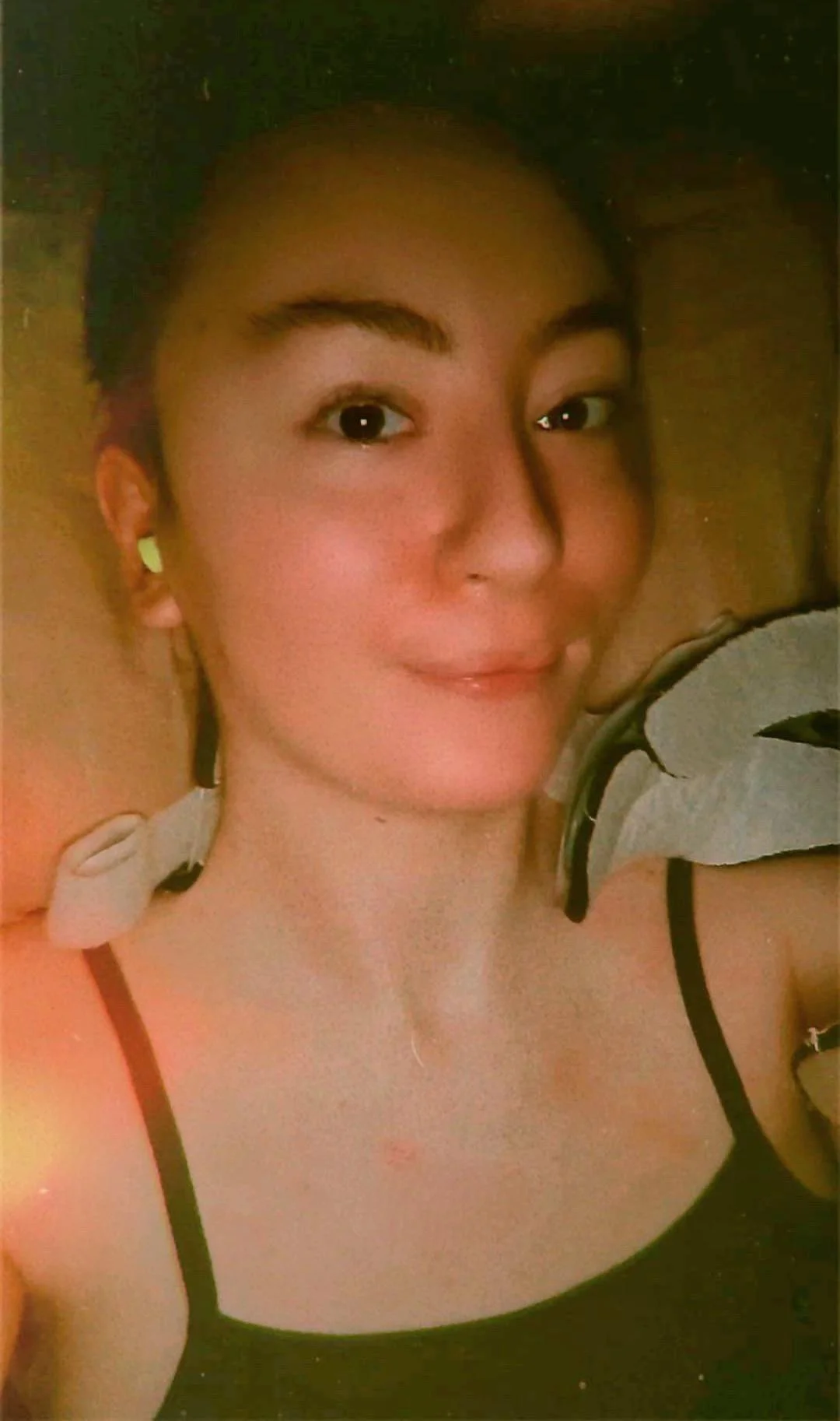Growing Up with Undiagnosed ME/CFS
By Line Langager
I’m sitting at the top of the curved staircase, picking at the peeling white paint on the railing. I’m no older than nine, but a lead-like sensation has held my legs in a tight grip since I woke up. Really, they often feel like this; like time’s wear has already set in, ignoring my age all together.
I’m only now trying to get downstairs to have my breakfast, picturing my family sitting at the table as I gather my strength. Step by aching step, I slide down on my butt, pausing several times to catch my breath. I had gym class yesterday. A sensory nightmare under bright fluorescent lights, forcing me to squint at the teacher as he attempted to get me to run along with the other kids.
At the foot of the stairs, I take a look at my reflection in the mirror on the wall. A frail and pale girl is staring back at me, her hand trembling as she tucks a strand of hair behind her ear—just like I just did.
I grit my teeth as I carry my plate to the dining table, nearly dropping it along the way as my arms begin to give in, too. I lift the glass with chocolate milk to my lips with both hands, leaning my elbows on the tabletop to alleviate the struggle. Mr. Bean is squatting next to his bed on the TV, looking at something under his bed. As he finds his teddy bear, I make a face, and my mom asks me what’s wrong, and I quickly straighten my expression.
“Doesn’t it hurt him?”; I ask sincerely, as I watch him already running down a sidewalk waving for a taxi.
“What? What are you talking about?”;
“When Mr. Bean squats, his legs must hurt badly,”; I reply.
“No, why would they?” she asks.
I place the glass back onto the table, starring blankly at the crumbs next to my slice of toast.
“Because it always hurts me.”
Soon, my gym classes were permanently wiped from my schedule at school, replaced by a tiny little “-” marking my absence. Despite it, I often had to skip classes either in the morning or in the afternoon to sleep, just to get through the week. It had been years already, since the mysterious virus I caught in kindergarten made me sleep for a month straight. I no longer had any recollection of what normal was supposed to look like—and least of all, feel like.
I missed out on a lot of things. Hanging out with anyone after school was nearly always out of the question, unless it was an activity where I was able to sit down the entire time. I could never articulate the issue, and having no particular name to apply to the level of disability I was facing was alienating. It was always ‘just’ fatigue, or ‘just’ chronic pain.
Simply getting to and from school required a mental calculation—could I afford to walk to the cafeteria during lunch to sit with the others, or would that make it much harder to bike the way home in the afternoon? Some days, I had to leave early only to make sure I’d even make it back home in one go.
I’ve cried from fatigue on desolate bike lanes, sat on patches of grass until the sun’s rays evaporated the evidences of weakness so I could go home. I’ve held it together for so long, I wonder what would happen if I ever let go. People never knew, really, other than the fact that I appeared a bit strange and wasn’t always present—because I never let them see me, when I was too unwell to be seen.
In highschool, my attendance was at the bare minimum of 70%. I never did any homework, as I was too weak to carry all the heavy books back and forth between my locker and my home—so I kept them at school, and brought only what I needed to the individual classes. I didn’t have the time, either, as I needed to sleep for at least an hour or two the second I got home in the afternoon.
How did everyone else make it work?
What would it be like to get through a normal day, going to school, socialising and doing homework before going to sleep late in the evening?
Whether I think about my trips to the zoo, or the few vacations we went on over the years, I’m always haunted by a sinking feeling in my gut. The memory of the crushing fatigue and the desperation in every cell, screaming for me to sit down, still rings through me like a phantom. The artificial smile plastered onto my pale face still numbing my cheeks like a bitter wind. The sigh of my parents waiting for me to catch up as they leave, the memory of my legs nearly buckling beneath my weight—and the pain that would always await me in the morning. Always.
As I look back on the seventeen years I spent suffering with mild ME in silence, I can’t help but wonder:
How much better would my life have been with the right diagnosis?
How much could I have been experiencing, had I had access to the right mobility aids and pain relief?
How much of this comes down to medical gaslighting?
Now, I know the answer.
Everything.
Line Langager,
currently living with very severe ME
Instagram: @nebulow
Author Instagram: @author.line.langager


